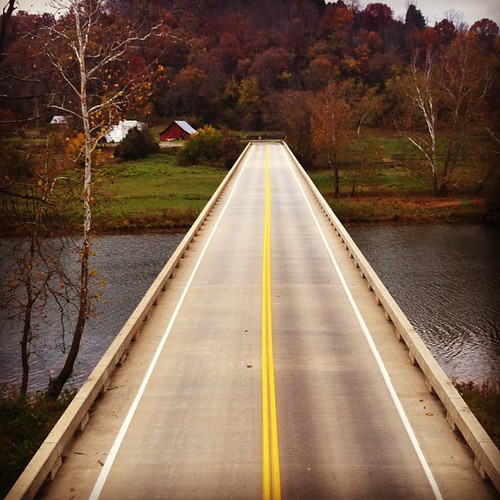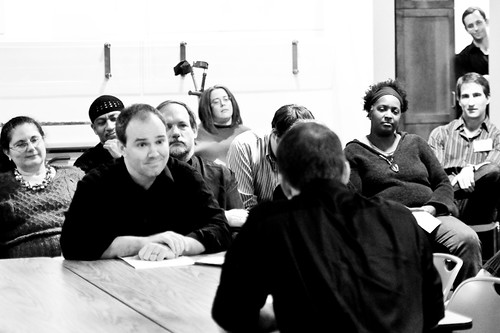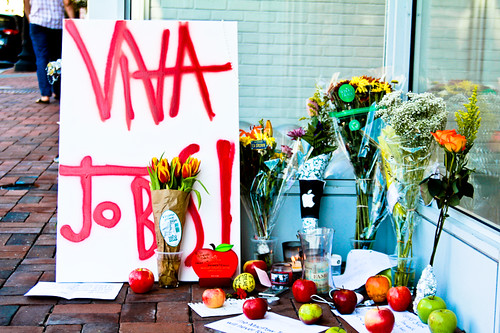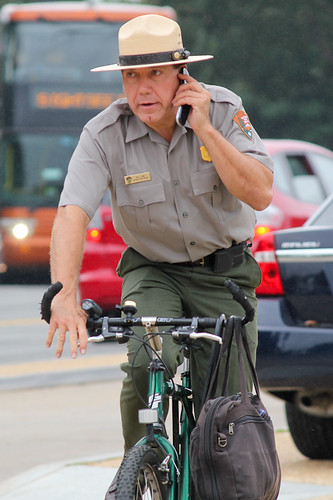by Joe Flood
Thematic Literary Magazine, Issue 3
I’M NOT GOING TO LIE. Everything you’ve read about me is true. It’s in the public record – testimony, videotapes, the gas can – so I’d be crazy to pretend otherwise. The fact pattern is well known. I thought the “E! True Hollywood Story” did an excellent job with the material. I lived it and even I learned something. I didn’t know those home movies existed. Man, I was a cute kid. Freckles, baseball cap, like a little Ron Howard. Guess my uncle shot them and then dug up the Super-8s when he could get some easy cash for them. Well, good for him. Glad that someone related to me made a profit on my story. I certainly haven’t.
My motives have been discussed endlessly on local blogs – DCist, 14th and You, Prince of Petworth, The Really Real World – but only I know what was in my head. There’s no way any pajama-clad wannabe psychologist, lit up by the glow of their MacBook, is going to know the truth. How could they? Their ill-informed speculation… they may as well be writing fan fiction, overheated stories of Spock and Kirk in a forbidden embrace. Bloggers, live your own life, don’t try to peer into mine. Step away from the computer and experience something real, in the messy analog world. What looks black and white, off and on, ones and zeroes in your electronic domain is an ugly, sweaty, hostile street fight in mine.
I’ll start at the beginning. I’m not like you. I didn’t grow up digital. I rode around with my parents in Detroit behemoths belching clouds of black smoke as we cruised down endless highways, 8-track tapes blaring. No car seats, no air bags, no cupholders, seat belts optional. At home, we had records that scratched and warped and we kept our windows wide open, not worried about child predators. We played on railroad tracks and smashed our bikes together, not wearing helmets. Our parents were distracted – it was the 1970s. They worried about drugs, divorce, the neighborhood going to shit. They let us out of the house at dawn and told us to not return until it was dark. We were a gang, kids of various sizes and ages, roaming the streets in search of fun.
We were not cosseted, spoiled. No play dates, no homework, no tutors, no SUVs squiring us around in air-conditioned comfort. At the end of the day, we all returned home, dirty, bruised, maybe bleeding a bit. Our parents cleaned us up as a practical matter – “don’t bleed on the couch” – but weren’t too concerned about our rock fights near the river or the nail that Jimmy stepped on. That’s what kids did.
I didn’t even see my first computer until junior high. Useless, I thought. A teacher taught us to program it so that the dead box could add up numbers. My calculator, big as a brick, could do that. In high school, I wrote my papers on a manual typewriter, correcting my spelling mistakes with white-out. Sometimes, the keys got stuck, bunching together above the paper if I was typing too quickly. I learned to write, carefully, thinking about every word.
After college, I got a job at an insurance company. I filed papers, navigating row after row of beige cabinets, my skill at alphabetization more valuable than my degree. I lived in the suburbs, with my parents, driving to work every morning, tie around my neck, in an old Toyota whose gas tank I filled up a dollar at a time.
The Real World premiered on MTV, showing the drama of singles trying to make it in New York. The cameras made it fake but they had certain things right – the uncertainty, the squalor, the thrill and danger of pre-Giuliani Manhattan. Over the years, however, the show became more of an exercise in product placement. Wannabe actors preened for the camera, participating in contrived situations and getting drunk and emotional to maximize their screen time.
I went to law school, going deeply in debt to do so. After a couple years in the file room, I wanted to make a difference. It took me five years to do so, as I worked and took classes. I was engaged. Briefly. Funny, how the producers from E! dug up Anita. She looked like crap – wild masses of prematurely gray hair and the biggest pair of mom jeans I had ever seen. It felt good, a type of revenge, seeing the woman who had dumped me reduced to housewifery. With two kids on her lap and a shirt stained with apple juice, it was hard to even picture her as a sexual being, much less as the girl I gave a ring to.
What did she say on the “True Hollywood Story”? Oh yea, that I had rage issues. How could you go through this difficult life without getting angry now and again? Especially, if your fiancee leaves you less than a month before the wedding. You’d be angry too.
But this is not about Anita.
This is about Caitlin.
I know, she was out of my league. It was inappropriate. I was pushing forty and the girl was just out of college. No one came out and told me it wasn’t right but I got looks from people sometimes when we were in bars. They took in my bald head, my glasses. Then they stared longingly at her lustrous dark hair and sparkling green eyes. It didn’t make sense – what was she doing with him?
But she wasn’t really with me, I know that. We were just friends. She had interned at the Lawyers’ Committee on Civil Rights, where I worked. We tried, and failed, again and again, to expand the rights of prisoners in American jails. Ironic, now, isn’t it?
I fell in love with her from the first day. It wasn’t just her looks. It was her sweet belief that we were doing the right thing, something I had long ago had given up on. When she interviewed with me, she spoke in nearly a whisper about how prisoners were people too, destined to return to society. She spoke in cliches about redemption and forgiveness, her words simple, the beliefs of a child. I wanted to kiss her.
I settled for a peck on the cheek, many months later, a goodnight gesture, my lips brushing against her flawless, warm skin. We had been at happy hour, drinking $2 Buds in a bar jammed with hundreds of people her age and no one mine. I did it as she descended down the escalator on the Metro, watching her disappear beneath the earth. “Bye!” I shouted giddily, like a teenager.
She already had her Blackberry out, my touch inconsequential.
I walked home as a heavy summer rain began to fall. The streets flashed with lightning as I plodded ahead.
Head down, I almost didn’t see the film crew. I was trying to avoid puddles on the sidewalk when I looked up. The front of Helix, a fancy lounge, was lit up like the middle of the day. Three separate camera crews were filming from different angles, rapidly circling something important.
Squinting against the glare, I saw the object of their attention. A kid, barely out of high school, heavily tattooed, was trying to lift a drunk girl up off the concrete. She wore a lime-green dress that was now hiked up around her waist, revealing a thong nearly hidden in the folds of her ass.
The sound man dipped the boom mike to get their dialogue, which was slurred and unintelligible.
I watched for a moment as the kid tried to drag the girl to the limo, where another camera crew waited.
I had heard that the Real World was in Washington, my city, my home. As I watched the girl hurl pink vomit onto the side of the car, I realized that this must be the Real World cast.
The kid had no luck getting the girl upright. She slid down against the rear wheel of the limo, rain pouring down her dress.
I started to walk when a big hand reached out and slammed my chest.
“No,” the man said. He looked like a Nebraska lineman, a big blonde slab of muscle. He had an earpiece in his ear, like a Secret Service agent.
“I live that way,” I said, pointing up the sidewalk.
“Go around,” he replied, pointing out into the street. There was nearly a foot of water in the gutters. Cars sailed down the dark pavement, weaving around the stopped limousine.
“Legally, you can’t block the sidewalk.”
“Like hell I can’t.”
Defeated, I stepped out into the street. Cold water flowed over my shoes and up my ankles. I walked around the limo, traffic brushing my left hip.
I wasn’t hit by a car, despite being a pedestrian forced into the road, at night, in the rain. I would’ve sued MTV if I had been struck, a big judgement in my favor, for sure. Big corporation negligently causes injury to innocent man.
That would’ve made a good story, a much preferable tale than the one that actually occurred.
I invited Caitlin to an art show. It was performance art, hell, but it was free. We stood in an abandoned auto repair shop, drinking plastic cups of pinot, as a woman extricated herself from bandages. It took forever, the moon-faced girl slowly peeling off her coverings as me and Caitlin got drunk. Eventually, she stood there naked on the concrete. We applauded politely.
“I need a drink,” I said, as we walked out onto U Street. “A real drink.”
Caitlin nodded happily, trailing behind me as we navigated the crowds.
I took her to Solly’s, a dive bar where they served PBRs and Miller tallboys to the trucker-hat wearing hipsters that had recently invaded the neighborhood.
At the door, a bouncer checked Caitlin’s ID. Then he thrust a clipboard at us and told us to sign.
“What’s this?” I asked, pouring over the dense legalese.
“Just saying that you don’t mind being filmed. The Real World kids are coming here.”
“The Real World is coming here?” Caitlin asked, excited, reaching for the release.
I signed and followed Caitlin inside. We sat at the bar. Every time the door opened, she spun on her red vinyl stool to see if it were the Real World actors.
This is the moment I should’ve left. Seeing the hopeful anticipation in her eyes, the validation that only TV could provide, I should’ve walked out that door. Instead, I stuck to her side, swilling Miller, trying to steer the conversation to us, to her and I, to our moment at the Metro, to my love for this green-eyed beauty.
“I know it’s only been a few months,” I began, “but I feel that I know you really well.”
“What time do you think they’ll get here?” she asked.
They arrived too soon, heralded by producers with walkie-talkies and fannypacks filled with gear. Then the bar became white light as the film crew entered. Caitlin sat upright, smiling, eager to make eye contact. I turned my back to the camera.
This became important, later on, during the trial. During the episode, only the back of my head was visible. “That could be any bald man,” my defender argued, unsuccessfully.
The pickup took place very quickly. The Real World kids were in the bar for less than fifteen minutes, just enough time to do a couple of tequila shots. I caught glimpses of them in the bar mirror. The drunk girl I had seen outside of Helix was much prettier in person, especially when relatively sober. I sensed, more than I saw, the tattooed kid behind me. I felt a taut shoulder lean against me at one point and I knew that it was him. He was talking to Caitlin, asking her where she was from, what she did, all the while lit up by the glow of celebrity.
What was Caitlin doing? I saw the episode later, we all did. In her brief appearance, she was smiling brighter than I had ever thought possible, as the cameras caught her every movement. Her green eyes looked a little less striking on TV, her skin seemed a little washed out, but she was still lovely to me.
She left, without an explanation.
“You’re leaving?” I asked, as the tattooed kid squired her out the door. She didn’t even look back. The camera crews, producers and lights all followed. Suddenly, the bar seemed dark and empty, just me and the bartender alone in our obscurity.
“Good riddance,” the man said, pouring me a bourbon.
I took the shot in a gulp, burning on the way down.
“You know they’re just a couple blocks from here.”
“Yea?”
The bartender mentioned the address. I already knew where it was. I read all the blogs, like everyone else did. But I had no intention of going over there, no thought of rescuing Caitlin. She had left me.
I stayed past closing. While the bartender swept up, I remained at the bar with the bottle of Makers Mark. We were talking about something – life, fame, women, I don’t know. During the trial, he said that, in his opinion, I was a good man. I didn’t get sick or fall off the barstool or start yelling. I just sat there quietly and drank.
I love this city, well, the city I used to live in, at four in the morning. The bars have all closed and almost everyone has made their way home. A few cabs patrol the lonely streets. There’s no traffic so you could walk down the middle of the road if you wanted to. During this quiet time, you really notice how pretty the red brick buildings are, the towering oaks, the sky speckled with stars.
I appreciate it now. That night, however, I noticed none of this. I stumbled to the gas station at 15th and U. I bought a gas can and filled it up with two gallons of unleaded. The man behind the plexiglass divide assumed that my car had run out of fuel.
The interesting thing is my behavior on the video tape, which was introduced at trial. I weave to the pump, obviously drunk. However, I depart in a straight line, a determined foe, setting off into the night.
I show up on another security tape, seven minutes later. Seven minutes is the time it takes to walk from 15th and U to 17th and New Hampshire, where the Real World house was. Seven minutes is the time it takes for a sober man, moving briskly, to walk that distance.
The house was a mansion, the former Yugoslav embassy, a massive white marble slab on a corner. Across the street, production vans squatted on a city park. Producers were busy reviewing that night’s footage of their drunken charges. The house was lit up by klieg lights, pouring daylight into the homes of their neighbors.
I confess. I enjoy watching the tape. I appear at the edge of the frame. A rag is already stuffed into the gas can. I set it alight and then hurl the bomb up the front steps. It took just seconds, showing both an economy of movement and a single-minded purpose.
You know the rest. You’ve seen it replayed hundreds of times on MTV, YouTube, Hulu, CNN, MSNBC and countless blogs. No real damage is done. The house was marble, remember? Flames flare in the windows and the front door is singed.
The Real World kids panic. They flee out the back door, in various stages of undress as producers and camera crews rush to the scene.
Caitlin wasn’t among them. Initially, I believed that she had more sense than I gave her credit for. I watched the episode. She’s barely in it, just another bar girl.
I found out the truth later, from one of the producers. The kid didn’t want her. He found someone better, hotter, at the next place they went to. Caitlin took a cab home by herself. Crying. Her dream of fame was denied.
Like I said before, we’re different generations. She and I were probably doomed, anyway, right?
I owe more than $100,000 in legal expenses. And, sitting here in the federal pen, I don’t have much of a way to pay those bills.
My lawyer says that I have to demonstrate contrition, that I understand my offense and am truly sorry for it.
My “E! True Hollywood Story” got excellent ratings. There was a clever line in the script about me finally bringing reality to the Real World.
The funny thing about fame is that it’s got a half-life, like an atomic element. Six months from now, the media will have moved on to another scandal, another controversy. Next year, people won’t know my name or why I was famous.
Which is why my producer says we have to act immediately. We start filming next week, showing my rehabilitation. It’s a raw and controversial look at the American prison system. My old employer, the Lawyers’ Committee for Civil Rights, signed on as a technical adviser. They’re getting a substantial payment. A donation.
This show will be different. It will be real. The producers wanted to get my teeth whitened but I said no. However, they will apply makeup to my shiny bald head so it doesn’t appear “hot” on TV.
We begin shooting on Monday. In the first scene, I sit down with the warden. He’s to tell me all the rules of the prison. I already got this briefing, from an anonymous corrections officer, when I was processed, but it’s more dramatic if the warden lectures me. I’m going to be in handcuffs. I’ve been in jail for three months and haven’t been cuffed once. It’s minimum-security. They normally only cuff you if you screw up.
I hope that this series will teach people something. It will show them what prison is really like.
Yesterday, my producer had an interesting suggestion. They’d like to get Caitlin involved. It would be excellent television, a face to face meeting between me and the woman I loved. What would I say to her? They had some ideas, some lines I could use.
“Yes,” I said, smiling. In this dark cell, I had almost forgotten what happiness felt like.
The producer is outside the gates, making the call. But I already know what the answer will be. I finally have something she wants.





